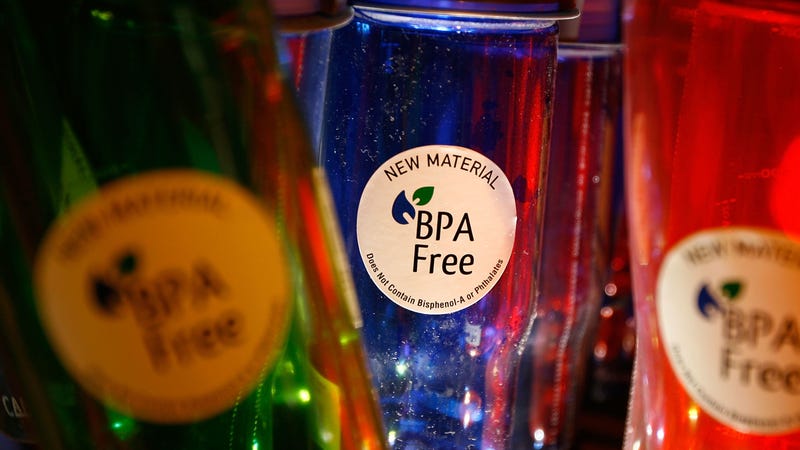
Plastic products that boast of being “BPA-free” aren’t necessarily any safer for us, suggests a new mouse study published
Thursday in Current Biology. The chemicals used to replace BPA in these
plastics can still leak out and affect the sperm and eggs of both male
and female mice, it found. And these same effects could be happening in
people.
Bisphenol A, or BPA, is a chemical commonly used to
create polycarbonate plastics and epoxy resins. These clear white
plastics are themselves used in food and drink packaging, as well as
consumer products and medical devices, while resins are used to coat
metal products like canned foods. When these products degrade or are
otherwise damaged (from being repeatedly heated in a microwave, for
example), they can leach out BPA, exposing us to it. As a result, it’s
estimated that 93 percent of Americans have some level of BPA in their
system.
That’s
troubling, because there’s growing research showing BPA exposure can
have subtle but real effects on our health. It’s one of many chemicals
thought to interfere with our endocrine system, which regulates how
hormones affect everything from our fertility to brain development. BPA
in particular has been implicated
as a possible cause of genital deformities in men, early puberty in
women, and developmental problems in the very young; it might also
contribute to metabolic disorders like obesity as well as certain
cancers.
No comments:
Post a Comment